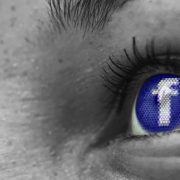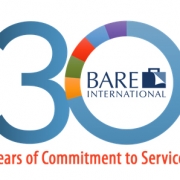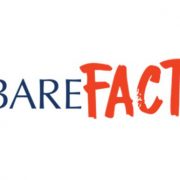BARE Shares – Is Your Mystery Shop Program Working?
BARE International can help your company craft a customer research program that includes mystery visits, to fit your unique needs. Here BARE shares an article from Hotel Executive – Is Your Mystery Shop Program Working?
‘To find out whether your hotel’s mystery shop program is enabling you to measure service levels in a way that is useful to your team and bringing about tangible results, ask yourself five questions.
1. Is it based on relevant logic?
You know your mystery shop program is working when results are revealing the things you don’t know rather than the things you do know.
Mystery shops should focus on the things that are hard to see or observe. How are your employees behaving in complex situations?
An outdated mystery shop model focuses on the obvious things that anyone walking through your hotel would notice. These things might include employees in poorly fitting uniforms, burned out light bulbs, damaged carpet-things you see every day on the job.
The logic behind truly modern mystery shop platforms allows you to measure complex behaviors. Rather than simply record whether the wait time at check-in exceeded five minutes, modern mystery shop programs require mystery shoppers to record real wait times and details such as whether or not the front desk agent apologized when wait time standards were not met, whether anyone was working the line, whether refreshments were offered, etc.
A mystery shop program will only reveal the things you don’t already know about the guest experience when it focuses on specific behaviors rather than on arbitrary details. How did the in-room dining server behave in the guest room? Was the pool attendant sending texts from his personal cell phone when he or she thought no one was looking? Is your bartender sticking to appropriate discussion topics while serving your guests? Did the parking lot attendant use the guest’s name? Mystery shopping should be all about getting you answers that you don’t already know or may not be able to anticipate.
2. Does it measure brand delivery?
When your mystery shop results are too qualitative, you are essentially paying for very expensive guest comment data rather than mystery shop data. Don’t confuse guest comment data with mystery shop data. Guest comment surveys and mystery shops must be designed to measure different things in order to work together and be effective. Guest comment survey results should tell you about your guests’ perceptions of your brand. Mystery shops should tell you how your brand elements are being delivered.
Mystery shop data also gets confused with quality assurance (QA) data. QA inspections look at things you can measure by simply walking through the hotel unannounced and making thorough observations about the property. While QA inspections examine both processes and physical products, like guest comment surveys, they are not as effective as mystery shops when it comes to measuring the delivery of those processes and products to the guest. QA inspection results will indicate whether you have the perfect china and table sets for in-room dining. Mystery shop results will tell you whether the server is pouring the beverages for the guest, removing covers and presenting the food, putting the flowers on the table-detailed information on service delivery.
In addition to confusing guest comment surveys and QA inspections with mystery shops, a mistake that is easy to make when it comes to mystery shops is the use of generic standards. Generic standards can’t accurately measure the delivery of a specific brand. Mystery shop checklists need to reflect the deliverables that are unique to your hotel and the specific promises that you make to your guests. Base your mystery shop checklists on your hotel standards and marketing promises rather than on AAA hotel rating requirements or the articles on hotel standards that you read in Forbes.
When mystery shop checklists are based on effective, measurable standards that have been customized in accordance with the characteristics of your particular brand and/or property, you will learn how well you are executing your brand promises. Improved scores will reflect that you are improving your hotel’s image through the guest experience.
3. Are my results objective?
When your mystery shop survey results aren’t objective, you are likely to meet significant resistance when you attempt to get employees to accept criticism and make positive changes to performance.
Subjective mystery shop results indicate things like whether or not employees were “friendly.” If you tell your employees that a mystery shopper indicated that they weren’t friendly, the likelihood that they will become defensive is very high. What qualifies as friendly behavior? Ask 10 people, and you will get 10 different answers. Anyone can claim that they are friendly in their own way.
Objective mystery shop results indicate things such as whether or not employees used the guest’s name and made eye contact. They focus on behaviors rather than on character. When you address behaviors rather than subjective personality traits, employees have less reason to become hurt, defensive, or argumentative, and more apt to acknowledge that there is room for improvement when it comes to their on-the-job performance.
To generate objective mystery shop data, in addition to making sure that your surveys are focused on objective behaviors, you need to make sure that your surveys are being conducted by the right people.
Ideally, you want to employ mystery shoppers that mirror typical guests. There are two reasons for this: the first is that mystery shoppers that mirror typical guests are going to be better able to judge the experience, and the second is that they will be better able to blend in with the crowd and remain anonymous.
Local mystery shoppers are generally less expensive to employ than out-of-town employees. Of course, there are hotels and destination properties that market to consumers that aren’t present in the local market. Destination properties, in particular, will probably find it worth the extra cost to bring in shoppers from other places.
4. Can I turn my data into a plan?
The whole point of developing well-designed surveys and having objective data is to turn them into an actionable plan. To develop your plan, you have to be able to identify the issues that are most important to your organization.
If you have difficulty developing a solid action plan, you may need to go back and review your mystery shop survey’s design. Often, hotels will try to measure everything equally. Whether the front desk agent located the guest’s reservation immediately is given as much weight as whether the agent used the guest’s name. When what impacts the guest the most doesn’t jump out of your mystery shop reports, it can become difficult to determine which issues are most important.
If your survey’s design is on point and you still have trouble determining whether your action plan’s next steps should incorporate specific training or operational changes, or both, the problem may be that you don’t have the right standards in place or don’t have consistent standards across all departments. Hoteliers and managers generally don’t jump up and down when they realize that they will have to revisit the standards in order to begin solving their service-related problems, but recognizing that the standards may need revamping is actually a good thing. Once you come to the conclusion that your problems stem from the need for different and/or consistent standards hotel-wide, you can address issues at the root level right away rather than spinning your wheels trying to fix them on the surface.
5. Can I turn my plan into action?
Once the issues most important to your organization have been identified, focus first on changing the things that are absolutely critical to your organization’s success rather than trying to fix everything at once or addressing issues in a random order.
To determine whether the steps you’re taking to correct issues are the right ones and being conducted in the right order, continue to look at your mystery shop scores and compare them to your guest comment survey results. If your mystery shop scores go up, you are giving your employees the incentives they need to change their behaviors. If your guest comment scores also go up, you know you are incentivizing the behaviors that matter to your guests.
If mystery shop scores go down, look at how you are using or not using the data. There may not be a problem with your plan, but with its execution. Are all operational issues being addressed? Are training workshops and seminars being conducted in a timely fashion? Are your on-the-job training and corrective coaching practices effective?
If your mystery shop scores go up, but guest satisfaction levels don’t improve, talk to your mystery shop service provider. It may be time to redesign your mystery shop program.
If you are making the appropriate operational changes and changes to training, but guest numbers don’t increase and revenue numbers don’t improve, look to causes outside of guest services. Providing an excellent guest experience is one key to success, but it is not the only thing that drives business. Guest counts and revenue are also driven by season, increased competition, sales and marketing, and other factors.’
Continue reading the full article at the Hotel Executive source here.
Get all your mystery shopping services and more from BARE International India – the most trusted name in Customer Experience Research. Contact us today to get a complimentary evaluation of your business.











Leave a Reply
Want to join the discussion?Feel free to contribute!